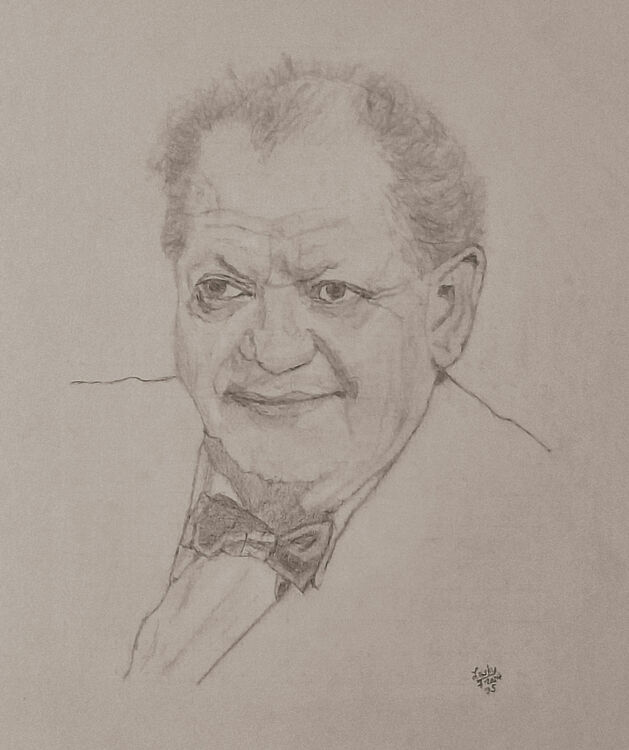
Rudolph Schildkraut
The famous Yiddish theatre composer, Joseph Rumshinsky wrote this about Rudolph Schildkraut for the Forward newspaper in 1953:
“On 14th Street and Irving Place there is found the Irving Place Theatre … At that time it was the German theatre. There they played a fine repertoire. They played classic dramas, lebensbilds, comedies and operettas, but of a fine sort.
There they did not stage any original plays, no spectacles à la Broadway, but they played good theatre, and without tricks.
The German theatre later became the model for theatre in America. They had the German theatre to learn from.
The greater part of the company was imported from Germany or Austria. They brought over the finest actors from there. From time to time they also used to bring over a great star from Austria and Germany …
The great German actor Rudolph Schildkraut is talked about in the known Yiddish theatre world. They often used to say that under the great Jewish-German stage director Max Reinhardt, there once played a great Yiddish actor with the name of Rudolph Schildkraut.
When they became aware that the German theatre brought over Rudolph Schildkraut, the artistic world cooked, especially in the Yiddish theatre world.
They knew that Rudolph Schildkraut was proud of his Jewish ancestry. It was said that if he wanted to deny his ancestry, one wouldn't know it, because his eyes look like the eyes of a rabbi. It was said that his appearance cried out: "I am a Jew."
Finally Rudolph Schildkraut came to America. He performed in the German theatre, and the Yiddish actors ran to see him, and they greatly admired him.
"This is what an actor is," they cried, "He has a voice -- just like if God would want to speak!" they said.
His greatest success was made in the play, "Kitchenbaum," where he played seven various roles and characters.
At the end of the production of "Kitchenbaum," Boris Thomashefsky said to me: "I have decided to engage Rudolph Schildkraut for my People's Theatre."
I looked at Thomashefsky and it was clear to me that this must be one of Thomashefsky's exaggerations, but in about a couple of weeks it was advertised in all the newspapers that Rudolph Schildkraut was engaged in the People's Theatre, under Thomashefsky's and Edelstein's management …
Just like Germany was proud of Schildkraut's pure German dialect, so later the Yiddish theatre was proud of Schildkraut's pure, tasteful Yiddish.
Schildkraut succeeded in becoming a German imperial royal actor. He was raised from below but rose on the stage like a giant. He was sharp, wise and at the same time naive as a child.
He played "Shylock" in Berlin three hundred times for Christians, but with Jewish grief and heart. The critics in Germany could not decide in what type of roles he was greater, in tragic or in comic character roles.
Yiddish actors used to speak to him in German, and he used to answer them in a pure Yiddish. He used to say that the Americans acted beautifully in the theatre, but the Jews did not play theatre well. He knew geography well and never knew where he was going.
Max Reinhardt, the famous Jewish-German stage director, used to say that Rudolph Schildkraut can play a big role like any of the great actors of the world, but none of the great world actors could play so well in a small episodic role as Rudolph Schildkraut."